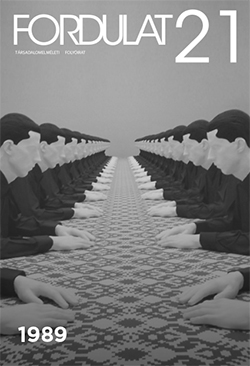Antipolitika és a kapitalizmus szelleme: Disszidensek, monetaristák és a cseh rendszerváltás
Anti-Politics and the Spirit of Capitalism: Dissidents, Monetarism, and the Czech Transition to Capitalism
Author(s): Gil EyalSubject(s): Politics / Political Sciences, History, Social Sciences, Economy, National Economy, Supranational / Global Economy, Civil Society, Social history, Recent History (1900 till today), Government/Political systems, International relations/trade, Political economy, Transformation Period (1990 - 2010), Financial Markets, Socio-Economic Research
Published by: Fordulat
Keywords: anti politics; monetarism; czechoslovakia; dissidents; transition to market economy;
Summary/Abstract: The article focuses on the – at the first sight counterintuitive – temporary alliance between two important social groups (the so-called „dissidents” and „monetarists”) during the Czech transition to capitalism. After the repression following the Prague Spring in 1968, the two groups find themselves in different social positions. While a part of the humanist intelligentsia, as a response to ideological repression, chose to „dissent” and subscribe for the ideas of anti-politics and to „live within the truth”, a great number of critical economists could remain within the institutions of the state apparatus (albeit without being able to make a career), where they gradually picked up monetarists ideas and practices. The dissidents imagined themselves as having a moral authority because of their sacrifice, and through their pastoral power they persuaded people to participate in a self-organized civil society put in contrast to the socialist regime. The monetarists, on the other hand, subscribed for the idea of the market and for its technique of „governing from distance” as opposed to the state’s discretionary interventions. Because of their elective affiliation, the two groups became the main mediums of the spirit of capitalism during the transition process, thus they created the bases of „capitalism without capitalists”. Though the alliance between the two groups did not last long, during their affiliation they created the context of neoliberal reforms by the monetarist technology of governing from distance and by propagating the idea that the society should purify itself by sacrifice.
Journal: Fordulat (2008-tól Új Folyam)
- Issue Year: 2014
- Issue No: 21
- Page Range: 216-264
- Page Count: 49
- Language: Hungarian

